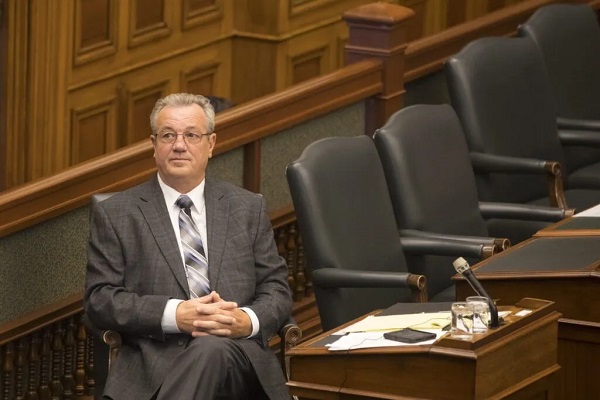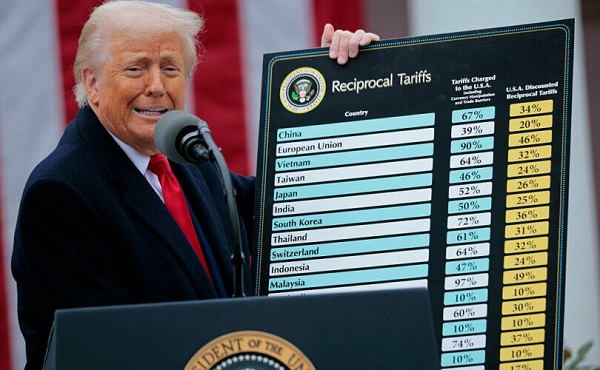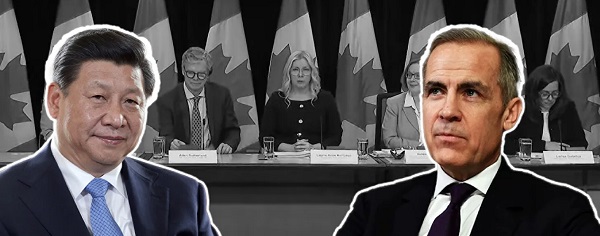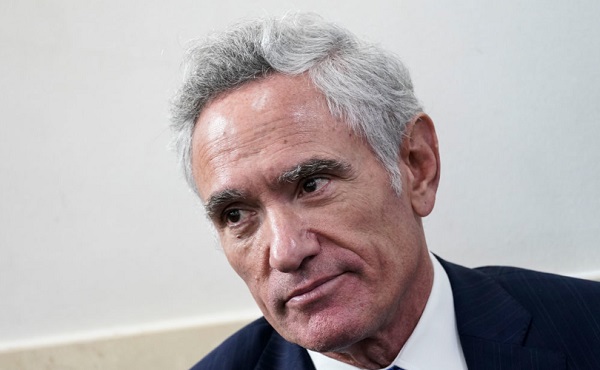COVID-19
How to interact with people in an uncertain world

I want to propose three general ground rules for interacting with people right now.

COVID-19
Biden Admin concealed report on earliest COVID cases from 2019

 MxM News
MxM News
Quick Hit:
A newly uncovered Defense Department report reveals that seven U.S. troops may have contracted COVID-19 during the 2019 World Military Games in Wuhan—months before the official pandemic timeline. The Biden administration kept the report from the public for over two years, despite a legal requirement to release it.
Key Details:
- A December 2022 Pentagon report shows seven U.S. service members showed COVID-like symptoms after attending the 2019 Wuhan games.
- The Biden administration withheld the report, which was required by law to be made public in 2022, until it was quietly posted online in March 2025.
- Evidence contradicts Biden officials’ 2021 claims and adds weight to theories that COVID-19 leaked from a Chinese lab before December 2019.
Diving Deeper:
The Biden administration withheld a critical Pentagon report for more than two years, one that sheds new light on the origins of the COVID-19 pandemic. According to documents obtained by the Washington Free Beacon, seven U.S. military service members may have contracted COVID-19 during or shortly after the 2019 World Military Games in Wuhan, China—a full two months before China officially acknowledged the outbreak.
The report, completed in December 2022, was mandated for public release by the National Defense Authorization Act. Yet, the administration only passed it to select Congressional committees and failed to make it publicly accessible as required. It wasn’t until March 2025 that the report quietly appeared on a Defense Department site under a section dedicated to “quality-of-life” issues—far from public view.
This revelation directly contradicts claims made by Biden administration officials in 2021, including then-Defense Department spokesman John Kirby, who stated there was “no knowledge” of any infections among the U.S. participants. The Trump administration had also denied early on that troops were tested or showed symptoms, citing the timing of the games before China’s outbreak announcement.
Held just miles from the Wuhan Institute of Virology—where controversial, U.S.-funded gain-of-function research was conducted—the 2019 games have long drawn suspicion from national security and public health experts. Prominent biologist Dr. Richard Ebright told the Free Beacon the report confirms that COVID was already circulating and likely leaked from the Wuhan lab: “This new information strengthens U.S. and allied intelligence data.”
Adding more context, athletes from European countries such as France, Germany, and Italy also reported flu-like symptoms in Wuhan, describing the city at the time as unusually empty—a “ghost town.” All seven American service members recovered quickly, and the Pentagon has not revealed when it first became aware of the cases.
Sen. Joni Ernst (R-Iowa) called the report’s concealment an “outrage,” noting it directly undermines the long-promoted narrative that COVID began at a Wuhan wet market in December 2019. “Taxpayers deserve to know the truth,” she said. “This report should have been made public immediately.”
Congressional Republicans have consistently asserted that the Wuhan games were among the first super spreader events of the pandemic. In 2021, House Foreign Affairs Republicans issued findings supporting that theory. Meanwhile, multiple federal agencies—including the CIA, FBI, and Energy Department—now publicly believe COVID most likely originated from the Wuhan Institute of Virology.
COVID-19
Randy Hillier wins appeal in Charter challenge to Covid lockdowns

Former Ontario Member of Provincial Parliament Randy Hillier in the Ontario Legislature (Photo credit: The Canadian Press/Chris Young)
The Justice Centre for Constitutional Freedoms is pleased that the Ontario Court of Appeal has accepted former Ontario MPP Randy Hillier’s appeal and overturned a lower court ruling that had dismissed his Charter challenge to Ontario’s lockdown regulations. These regulations were in effect during the 2021 Covid lockdowns.
The decision was released by the Ontario Court of Appeal on Monday, April 7, 2025.
In the spring of 2021, Mr. Hillier attended peaceful protests in Kemptville and Cornwall, Ontario. He spoke about the importance of the Canadian Charter of Rights and Freedoms and the harms caused by the province’s lockdown regulations. The government’s health orders made it illegal for even two people to assemble together outdoors: a blatant and unjustified restriction of the Charter section 2(c) freedom of peaceful assembly. Other provinces allowed five or ten or more people to gather together outdoors.
Mr. Hillier has outstanding charges in Kemptville, Cornwall, Peterborough, Belleville, and Smith Falls. Prosecutors in those jurisdictions are waiting to see the results of this Charter challenge. Mr. Hillier has faced similar charges in many other jurisdictions across Ontario, but these have been stayed or withdrawn at the request of the respective prosecutors.
Mr. Hillier defended himself against the tickets that were issued to him for violating lockdown restrictions by arguing that these lockdown regulations were unjustified violations of Charter section 2(c), which protects freedom of peaceful assembly.
Four expert reports were filed to support Mr. Hillier’s case, including the report of Dr. Kevin Bardosh, which extensively reviewed the many ways in which lockdowns harmed Canadians. They showed alarming mental health deterioration during the pandemic among Canadians, including psychological distress, insomnia, depression, fatigue, suicidal ideation, self-harm, anxiety disorders and deteriorating life satisfaction, caused in no small part by prolonged lockdowns. Many peer-reviewed studies show that mental health continued to decline in 2021 compared to 2020. The expert report also provides abundant data about other lockdown harms, including drug overdoses, a rise in obesity, unemployment, and the destruction of small businesses, which were prevented from competing with big-box stores.
Justice Joseph Callaghan dismissed that challenge in a ruling issued November 22, 2023. Notably, Justice Callaghan did not reference any evidence of lockdown harms that Dr. Bardosh had provided to the court. Without reasons, the court declared that Dr. Bardosh is “not a public health expert” and then ignored the abundant evidence of lockdown harms.
Lawyers for Mr. Hillier filed a Notice of Appeal with the Ontario Court of Appeal on December 22, 2023.
Mr. Hillier’s Appeal argued that, among other things, Justice Callaghan erred in applying the Oakes test. As the Notice of Appeal states, Justice Callaghan “fail[ed] to recognize that a complete ban on Charter protected activity is subject to a more onerous test for demonstrable justification at the minimal impairment and proportionality branches of Oakes.”
The Oakes test was developed by the Supreme Court of Canada in the 1986 case R. v. Oakes, as a way to evaluate if an infringement of a Charter right can be demonstrably justified in a free and democratic society. That test has three parts. The first requires that the means be rationally connected to the objective. The second is that it should cause minimal impairment to the right. The third is proportionality, in the sense that the objective of impairing the right must be sufficiently important.
Mr. Hillier’s Appeal focused on the second part of the Oakes test: whether the regulations were minimally impairing of Mr. Hillier’s 2(c) freedom where they effectively banned all peaceful protest.
Justice Centre President John Carpay stated, “It is refreshing to see a court do its job of protecting our Charter freedoms, by holding government to a high standard. There was no science behind Ontario’s total ban on all outdoor protests.”
-

 2025 Federal Election2 days ago
2025 Federal Election2 days agoHarper Endorses Poilievre at Historic Edmonton Rally: “This Crisis Was Made in Canada”
-

 conflict2 days ago
conflict2 days agoZelensky Alleges Chinese Nationals Fighting for Russia, Calls for Global Response
-

 2025 Federal Election1 day ago
2025 Federal Election1 day agoMark Carney’s radical left-wing, globalist record proves he is Justin Trudeau 2.0
-

 2025 Federal Election2 days ago
2025 Federal Election2 days agoAn In-Depth Campaign Trail “Interview” With Pierre Poilievre
-

 Business2 days ago
Business2 days agoTrump’s tariff plan replaces free trade with balanced trade. Globalists hate that.
-

 2025 Federal Election2 days ago
2025 Federal Election2 days agoElection Security Briefing Confirms CCP-Linked Operation Boosted Carney
-

 2025 Federal Election15 hours ago
2025 Federal Election15 hours agoConservative Party urges investigation into Carney plan to spend $1 billion on heat pumps
-

 Censorship Industrial Complex1 day ago
Censorship Industrial Complex1 day agoScott Atlas: COVID lockdowns, censorship have left a ‘permanent black mark on America’




